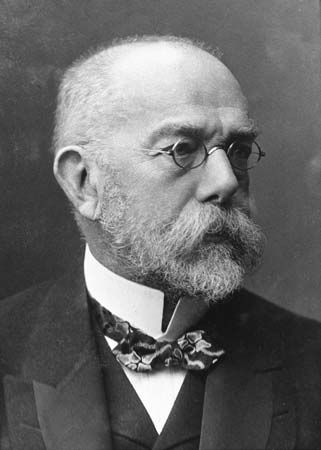Robert Koch discovers Mycobacterium tuberculosis, the bacterium responsible for tuberculosis.
Robert Koch, a German physician and scientist, presented his discovery of Mycobacterium tuberculosis, the bacterium that causes tuberculosis or TB, on the evening of March 24, 1882. He began by reminding the audience of terrifying statistics: “If the importance of a disease for mankind is measured by the number of fatalities it causes, then tuberculosis must be considered much more important than those most feared infectious diseases, plague, cholera and the like. One in seven of all human beings dies from tuberculosis. If one only considers the productive middle-age groups, tuberculosis carries away one-third, and often more.”
Koch’s lecture, considered by many to be the most important in medical history, was so innovative, inspirational and thorough that it set the stage for the scientific procedures of the twentieth century. He described how he had invented a new staining method and demonstrated it for the audience. News of Koch’s discovery spread rapidly. The results were published in a German medical journal on April 10, in England after a rapid translation in The Times on April 22, and in the US in The New York Times on May 3, 1882. Robert Koch was now a famous scientist and became known as “The Father of Bacteriology.” He was presented with the Nobel Prize in Physiology or Medicine in 1905 “for his investigations and discoveries in relation to tuberculosis.”

